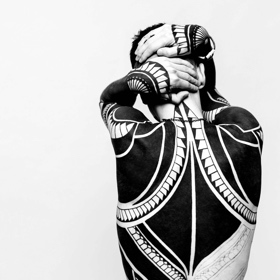Winter posture alert!
Did you know that the weather can affect your posture?
As we head into the colder season, it is worth thinking about the subtle changes we all tend to make to our posture as the temperature drops. These changes may be subtle but they make a profound impact on many areas of our lives. Being aware of them means you can start to take control of them.
Picture this: it’s grey, cold and bleak outside. What do you do?
Chances are that at just the mere thought you have instinctively curled up, imagined yourself slouching and maybe even wrapped your arms around yourself. This posture might seem like a sensible response to colder, wetter days but it can have a negative  effect both on our physical health and how we feel.
effect both on our physical health and how we feel.
When we close ourselves up and slouch, it triggers a range of changes in our upper body. We round from the back, and elevate our shoulders to our ears, which in turn forces our necks and heads forwards.
This winter posture is not easy for the muscles around our neck, shoulders and upper back to adapt to: they can become fatigued and aches caused by this can cause discomfort. Tension headaches become more likely, exacerbated by the darker days and increased use of artificial lights.
In a more rounded winter posture, the space at the front of our chest is forced to close, and this means our lungs must work harder to breath. If we get a cough or respiratory illness it is harder to shift as the airways are unable to function optimally in this closed body position. The lymphatic ducts at the top of your chest, responsible for transporting lymphocytes and draining your sinuses, are unable to drain efficiently, making recovery an uphill struggle. On top of this, the lower back has to support everything that is going on further up, and ‘seasonal’ low-back pain follows suit.
And it’s not just our health that can suffer from winter posture: it’s also our mood and mental health.
Research shows that adopting a curled up, round shoulder or low-power pose for just 2 minutes will decrease testosterone levels by 10%. Why is this bad news? Testosterone in both men and women acts as a regulator of cognitive and physical energy, which means when levels drop we can experience difficulty concentrating and fatigue.
In addition research demonstrates that closed postures increase cortisol levels by 15%. Cortisol is our stress hormone and high levels of it make us very stress reactive. The bad news doesn’t stop there, though: high levels of cortisol also weaken the immune system, which is obviously not ideal in the middle of winter.
Is there anything you can do about this? Of course there is, but it’s about learning to be aware and learning how to re-train your winter posture.
Osteopathy aims to both correct the results of winter posture and teach you to avoid them. It can help with the side effects of winter posture by easing your neck, shoulder and back ache, tackling those headaches, helping with lymphatic drainage, and generally helping you to realign your body.
But prevention is better than cure. As the days shorten and the temperature bites: think about your posture as you leave your home in the morning – open your chest, lift your head, and keep telling yourself to stay upright and healthy no matter what the weather! The funny thing is, somehow, just adopting that more beneficial summer posture somehow helps you feel that bit warmer as well as so much healthier.
By Leon Baugh, Osteopath at Shine, Newington Green
